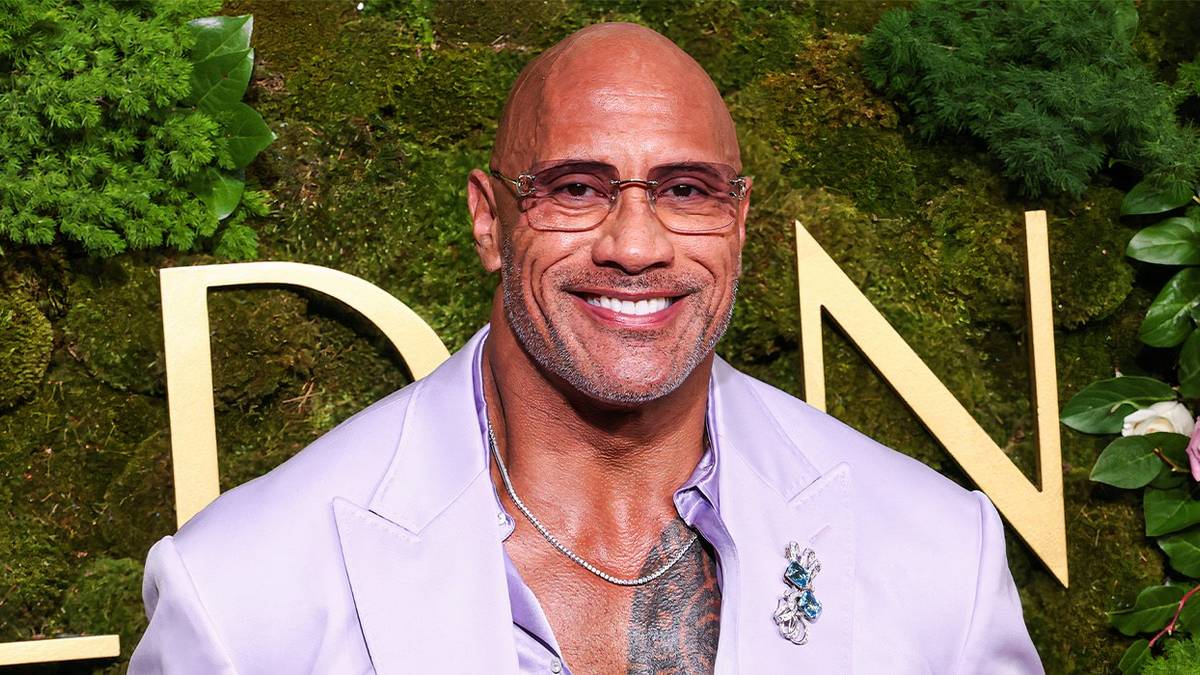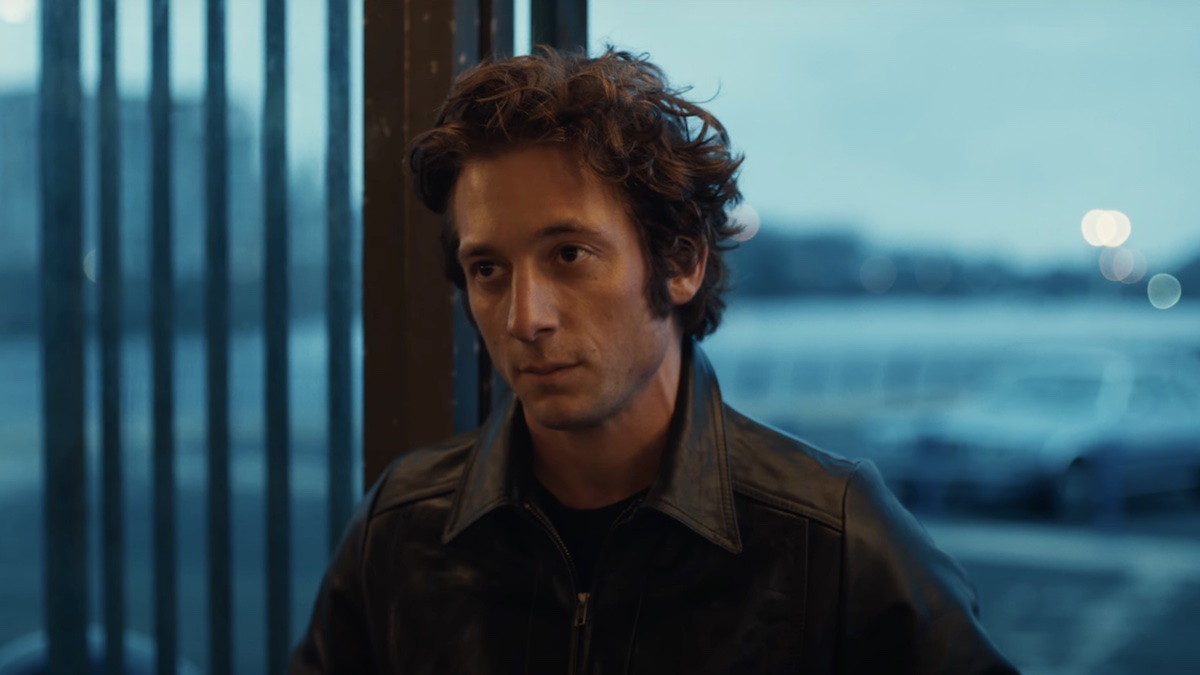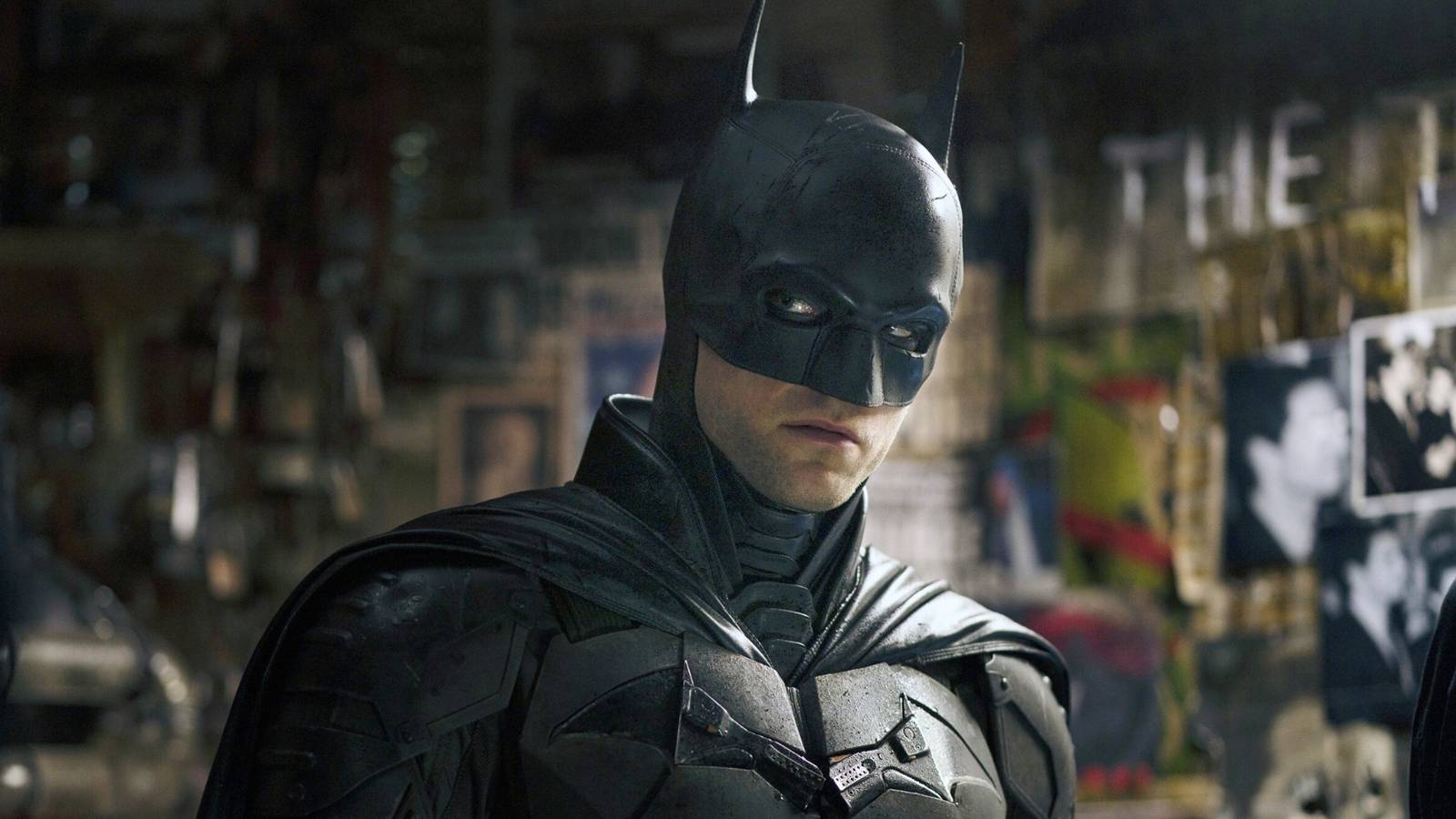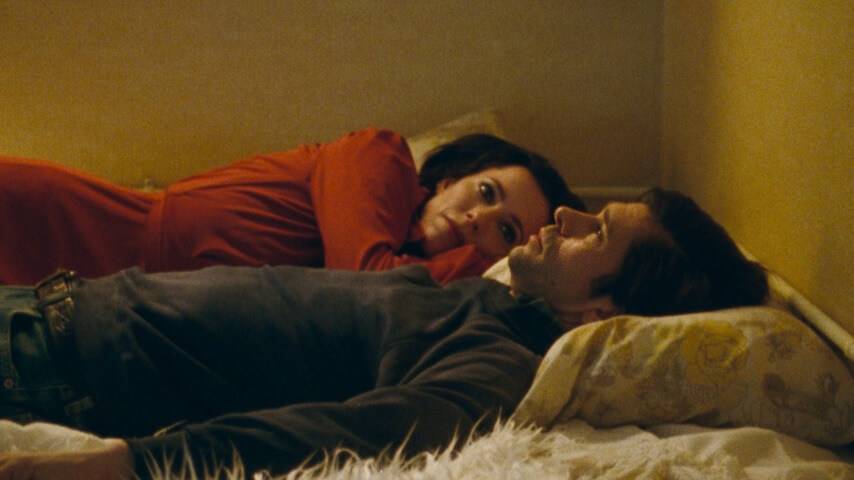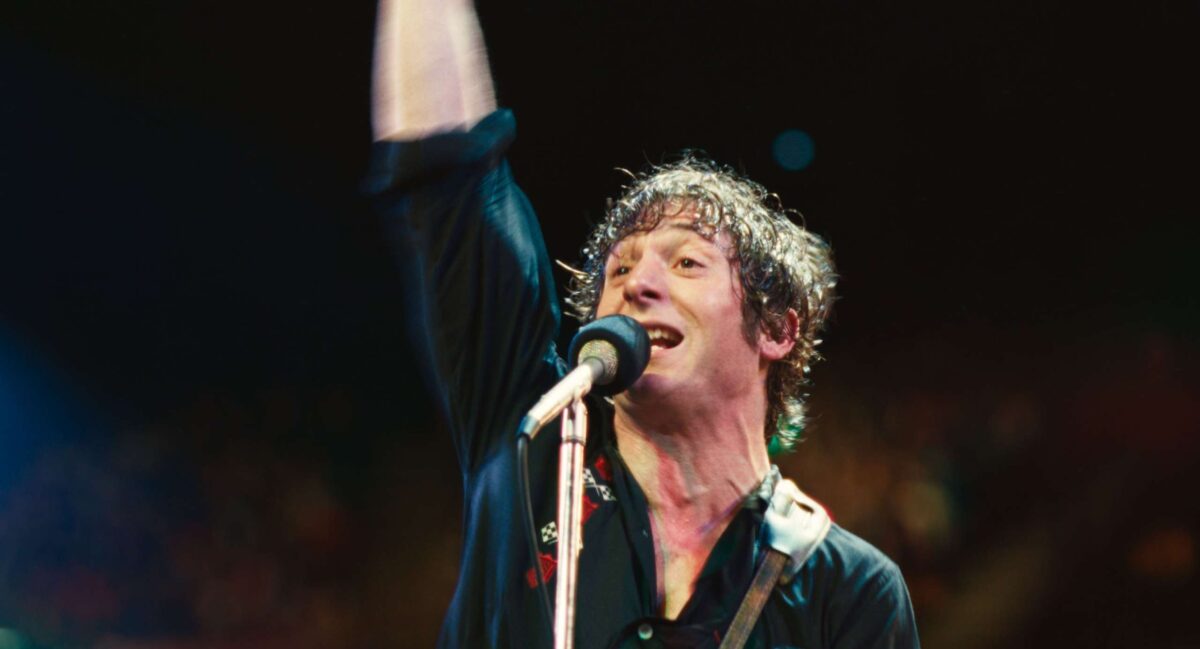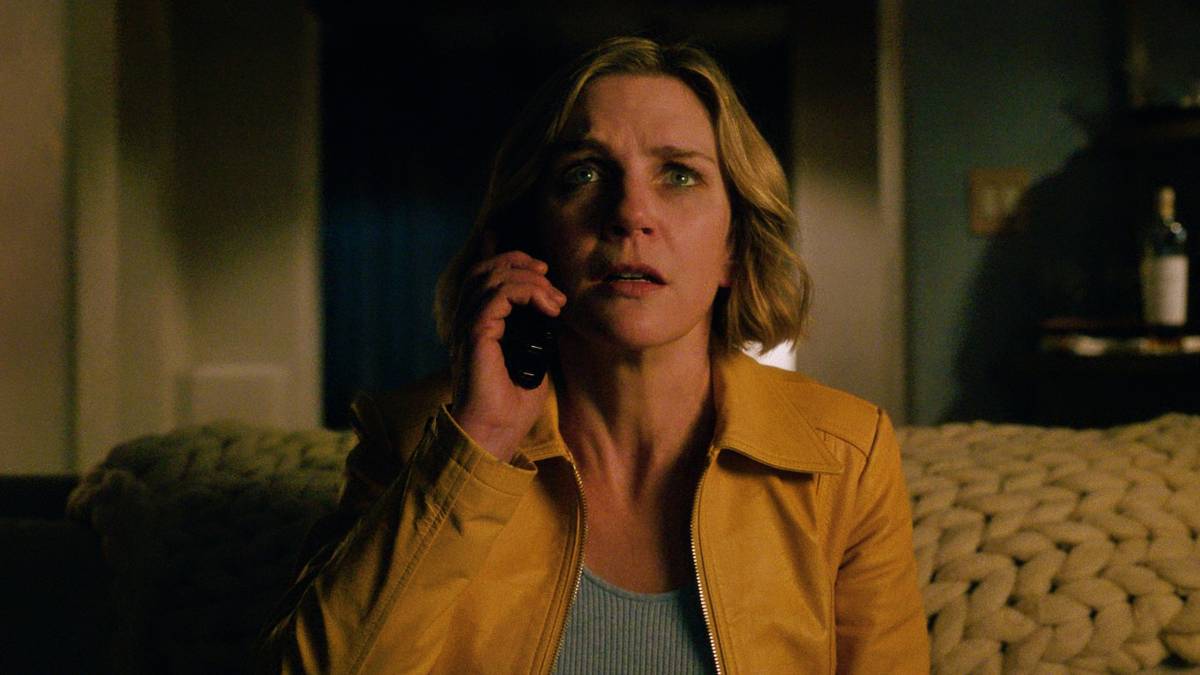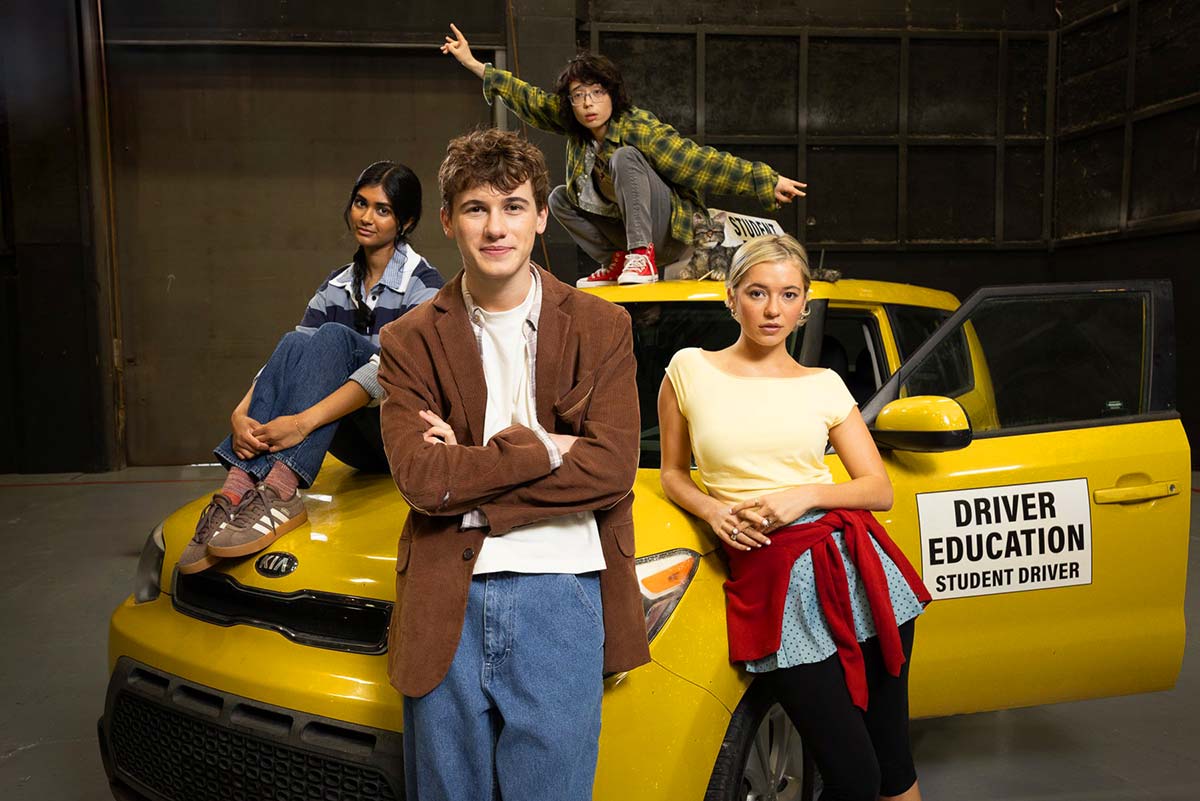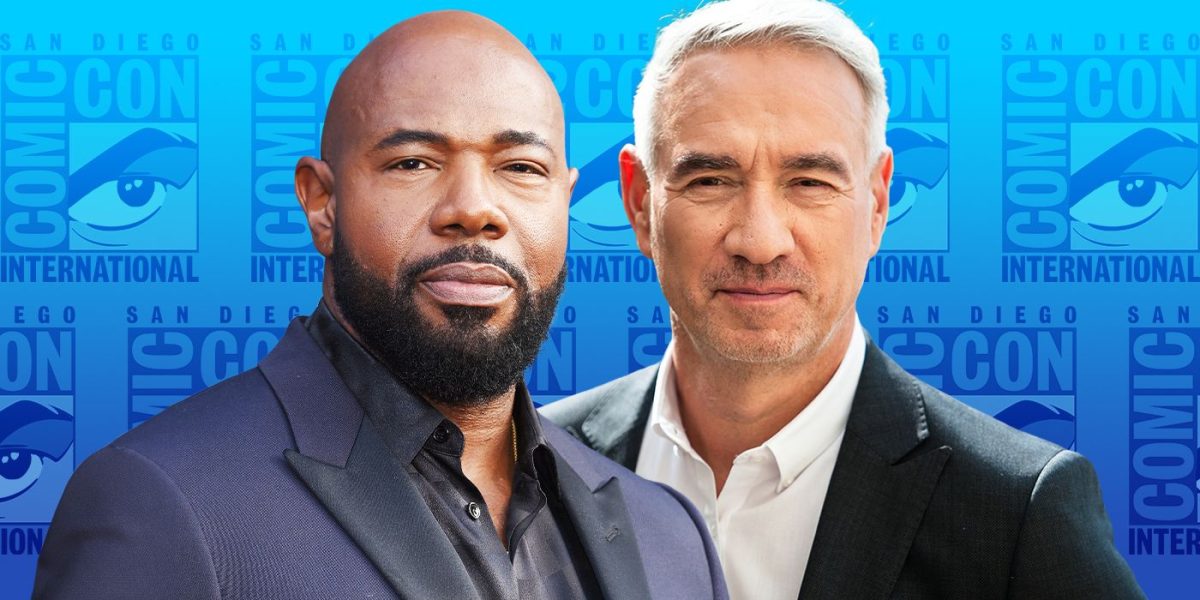
Directors Antoine Fuqua and Roland Emmerich Finally Discuss Their Thoughts on ‘Olympus Has Fallen’ vs ‘White House Down’
Aug 14, 2024
The Big Picture
Collider’s Steve Weintraub moderates our “Directors on Directing” panel at Hall H with guests Antoine Fuqua and Roland Emmerich.
The two Hollywood filmmakers discuss industry evolution and collaboration, surprising test screenings, industry insights, and valuable advice for aspiring filmmakers.
Fuqua and Emmerich discuss challenges, success stories, and working with actors in the movie-making process, from
Training Day
to
The Patriot
.
At this year’s San Diego Comic-Con, Collider’s Steve Weintraub invited two of Hollywood’s beloved filmmakers for our “Directors on Directing” panel in Hall H. We hosted Antoine Fuqua, who’s helmed dramas and action movies like Training Day, The Equalizer trilogy, Emancipation, and Southpaw, and uses violence as a love language, as well as Roland Emmerich, the master of disaster with features like Independence Day, The Day After Tomorrow, and Godzilla.
Our panel offered con-goers the opportunity to enjoy a conversation between two creatives sharing their thoughts on the industry today—how it’s evolved, new technologies, including AI as a tool in moviemaking, their thoughts on test screenings and editing, working with actors, and other directors. For these panels, we reach out to others in the industry for questions, so colleagues like Jon Watts (Spider-Man: Far From Home), Louis Leterrier (Fast X), Robert Kirkman (creator of The Walking Dead), and Josh Brolin (Dune) all make an appearance with some hard-hitting Q’s.
Check out the full conversation in the video above or the transcript below, where Fuqua and Emmerich discuss some surprising high and low test screenings, how they felt about 2013’s Battle of the White Houses (Olympus Has Fallen and White House Down), challenging movie sets that nearly ended their careers, rocky working relationships with filmmakers like James Cameron and Mel Gibson, surreal, dream-like experiences with artists like Prince, and so much more.
Creating Period Pieces Prove a Directorial Challenge
COLLIDER: Both of you have made and been a part of so many awesome, cool sequences. What do you consider the hardest shot or sequence that you’ve done in your career?
ROLAND EMMERICH: For me, it was actually in 10,000 BC. I had a very hard time because everything went wrong there. It was really hard to pull this all together. It was the scene where, more or less, they storm down, and everything went wrong, and I still pulled it off. I was really happy about that because, for me, this was the movie where I said, “Maybe I should think about early retirement and quit my job,” but I didn’t. Maybe that’s a good thing or a bad thing, I don’t know.
ANTOINE FUQUA: I think with every film you think about early retirement at some point. We’re kind of gluttons for punishment. For me, it’s Emancipation, the film I did with Will Smith, because I was filming it in New Orleans in the swamps, and it was 114 almost every day. We got shut down because of COVID I don’t know how many times. Then it was the hurricane. And when you’re filming in the swamps, there are alligators, and literally nowhere to put a camera. There were a lot of days where I just thought I would never make it out of the swamp, so retirement wasn’t even a question. [Laughs] I was trying to survive.
What do you think would surprise everyone in this room to learn about being a director in Hollywood?
FUQUA: Everything.
EMMERICH: The strange thing is I had to, at the very beginning of my career, find out that I don’t like comic book movies because I grew up in Germany, so I had to invent my own kind of films. I think the high point was Independence Day because, at that time, I worked with Dean Devlin, and we just thought, “We have to do something about an alien invasion.” We used the example of The Towering Inferno because it was the ideal situation. And it was kind of a super hit.
I heard it did well.
EMMERICH: It did really well.
FUQUA: Big hit. In fact, that teaser you did made me want to go back and watch more of Roland’s movies. What was the question?
What do you think fans would be surprised to learn about being a director in Hollywood?
FUQUA: So many things, but I would say that from the big complicated sequences to what somebody is gonna wear can become stressful and difficult. There are days when the smallest thing can just become a nightmare. Something you would never even think about. You show up ready to shoot, and somebody put one of your actors in the wrong thing after you’ve done a couple of takes, and the sun’s going down, and your producer’s telling you that you’ve got to wrap. You never know what it’s gonna be. What I would say is it’s always the unexpected. It’s the small things that can be stressful.
The Battle of the White House Movies
ROBERT KIRKMAN: This is such a tremendous honor to be able to ask a question to Antoine Fuqua and Roland Emmerich. Holy crap. Huge fan of both of you guys. Love you. So, I’m gonna be that guy. You guys made two movies—Olympus Has Fallen and White House Down—at the same time. It’s happened a few times in history where somewhat similar movies come out around the same time. So, my question is, was there any awareness of those movies while you were making them? Was it something that you found out afterward? Do you guys ever watch each other’s movies? Do you have opinions on them? Anything you want to talk about, I would be just absolutely fascinated to hear what you guys have to say about this.
EMMERICH: Actually, I learned right before shooting. It was maybe a month before that I learned that he was shooting another one, which is called Olympus Has Fallen, and I said, “This title is so much better than White House Down.” [Laughs] Honest to god. And I couldn’t stop it. We had cast the actors, and so I went through with it. I knew that you would come out first, and I knew that, also, mine would be an afterthought.
FUQUA: I was aware of it, but I didn’t think much of it in the sense of which one the audience would go see. I figured there’s room for those stories. Obviously, two different directors, two different visions, all different actors. There’s room for that. Then obviously, if you’re gonna make a movie and Roland Emmerich is making the same movie, that’s daunting, but at the same time, it’s challenging because it makes you step your game up because you know that that’s coming. So, it was more like a healthy competition. It was never negative to me. Like I said, I’m a fan of Roland, so I knew it would be quite a different type of film.
I had a little more room in my film—it didn’t cost as much—to be a little more violent. I was sort of gauging that on the temperature of what I felt the audience was interested in. Being not so far from 9-11 and other issues, I felt like I could make a grittier version because I didn’t have as much money at stake. So, that’s kind of how I saw it. But again, I’m a fan of Roland’s, and I never felt any negative competition. I really felt like, “I gotta step my game up because Roland Emmerich doesn’t fuck around.” [Laughs]
Roland, did you see Olympus, and Antoine, did you see White House Down? What was your reaction?
EMMERICH: Yes. It was a good movie.
FUQUA: Yeah, it’s a great movie, as always. Once they distribute it, it’s out of our hands. They have to sell it.
EMMERICH: I actually saw it on a plane.
FUQUA: What?!
EMMERICH: I’m sorry. It’s because I was out of time. But I wanted to see it, and this was the first chance I had.
FUQUA: I appreciate that. Well, I appreciate that. I saw yours on a big screen.
EMMERICH: I’m sorry. It was a very big screen. First class.
FUQUA: [Laughs] Well, there you go!
I’m fascinated by the editing process and I’m curious for both of you, which film in your resume changed the most in the editing room in ways you didn’t expect going in?
EMMERICH: I had the plan to do a movie about Stonewall, and it was not happening. Whatever we did, it didn’t work. So my editor actually said, “Why don’t we start with how he comes to New York, we see his thing, and then he gets into the life of this, and then we cut back to him, and then we see why he left.” That was a brilliant idea—not from me, but from my editor. [Laughs] It worked much better than I thought.
FUQUA: I think with each film, it’s always surprising. There’s the old saying that the first act is on the page, the second act is on the stage, and the third act is in the editing room. You’re always surprised in the third act when you get into the editing bay how to make sure you drive your message home and finish your story. I find that almost in every film. The Equalizer, in particular. The last one, The Equalizer 3, a lot in the editing room—we have several different versions of that ending. Pleasantly, people have seemed to like what they saw.
I actually don’t know what the other versions of the endings were in The Equalizer 3. Is it safe to talk about them?
FUQUA: The question was, did he find a home or not? A place to stay? Does he die or not? Things like that that we had discussed. It really didn’t come together until editing, as far as concluding his journey.
Antoine Fuqua Reveals the Duo We Almost Had in ‘American Gangster’
I’m sure you guys have wanted to make certain projects along the way, but they’ve fallen apart at the last minute. Do you have a project that was really close to filming, and then it fell apart?
EMMERICH: The project I always wanted to do is called Happy Birthday, Mr. President. There’s a very, very famous moment when Marilyn Monroe sang to President Kennedy. It’s actually about, in a weird way, the assassination– They first tried to claim the Kennedys for her death. That’s always been my favorite script, my favorite movie, but it’s stuck in endless… Everybody warns me about making this movie. It’s sometimes interesting that famous actors have rights, and you cannot just make them look exactly like them and get away with it. It’s difficult. When a movie costs more than, let’s say, $40 or $50 million, then you have no chance. There’s always legal, and they say, “No, don’t do it, Roland. This is dangerous. We don’t want to be sued by anybody.”
FUQUA: I was actually fully prepped for American Gangster. I was just a couple of weeks away from filming American Gangster. In fact, I’m the one who called it American Gangster. It used to be called Blue-something. When I got Denzel [Washington] involved, I changed it to American Gangster. That film fell apart because of financing. At the time, Universal couldn’t come to an understanding of the budget or cast. I cast Benicio del Toro, obviously Denzel, which is what I wanted it to be—Benicio and Denzel. At the time, Universal had other clients. When that fell apart, that broke my heart. That movie still breaks my heart. I prepped that whole movie and was ready to shoot in a couple of weeks. But Ridley Scott made it, so you can’t complain. It is what it is. It’s movies, you know? That’s Hollywood.
JONATHAN GOLDSTEIN: You’ve both done films with giant action sequences. Something I’ve always wondered about is how other directors approach that. When John Daly and I are prepping a film, we typically shotlist everything and figure out the blocking before we ever get to the set. But I know that there are some directors who just show up on the day and kind of piece it together. How do you approach those things?
FUQUA: I approach action scenes the way you approach dialogue. You gotta tell the story within the action. It’s not just action. So, you approach it the same as dialogue. There’s a conversation happening in the violence. Preparation is everything, but then still keeping the characters alive within the action is most important.
EMMERICH: I sometimes totally plan it, and sometimes I don’t. It’s really weird, but when I feel very in sync with the scene, I’m just doing it. It’s a little bit difficult for my crew because they always have to listen really carefully. Then others I exactly plan in pre-vis.
Is there an action set piece that you’re especially proud of in your movies?
FUQUA: I’m proud of Emancipation’s final battle because I did all that in-camera, and that was complicated to do. I was trying to work in the least amount of shots and choreograph the battle scene with the Confederates. That was a tough one because of the heat. I’m most proud that we pulled that off. We did that within a couple of weeks. It should have taken at least a month, but we did that within a couple of weeks. So, I’m most proud of that.
EMMERICH: I’m most proud of The Patriot because I was really nervous because I shot with Mel Gibson, and he’s himself quite an accomplished director. [Laughs] So you want to not let anything go to the wayside. There was that one scene, in which I wanted to show him that I’m an amazing director, and this was when they both stand and watch a battle. I had everything totally planned out, and it went really well, and he was duly impressed, I have to say.
FUQUA: That’s a great one.
Directors Weigh in on the Use of AI in Hollywood
Image by Federico Napoli
Something in contracts recently was about AI and how AI is going to impact Hollywood. For both of you, do you think AI is a tool that filmmakers can use? Is it something that’s Hollywood’s kryptonite? What are your thoughts on AI and AI’s future in Hollywood?
EMMERICH: I think it’s a tool. That’s what it is. It will always stay a tool. It just makes your job as a director easier. That’s what’s important. Because it’s not the day that AI does everything for you. You still have to choose the right actor, you have to shoot the right scenes, you have to do the right thing. And actually, AI can really, really help you do that.
That’s interesting because some filmmakers are very opposed to any AI being involved in movies. But the truth is, executives are going to find a way to incorporate it.
FUQUA: Well, it’s a tool, as Roland said. It will remain a tool. We’re creatures of habit. I remember I started with videos and commercials, and my first movies were all on film, 35mm film, digital was a thing that we all kicked and screamed about. Then, turns out that it’s fantastic. It’s another paintbrush that we can use to do our work. AI is the same thing. The thing that I think people get most excited about with AI is the thing that I think is the kryptonite, which is that it doesn’t replace human feelings or human emotions, those things that can only happen in the moment with another human being that no computer can ever achieve.
The Tale of James Cameron’s Not-So ‘Fantastic Voyage’
Image by Federico Napoli
LOUIS LETERRIER: Roland, you and I were attached to the same project, Fantastic Voyage, produced by James Cameron. We didn’t get to direct it and the project still hasn’t happened, and it’s still my dream to jump back on. I was wondering, are there other ones that got away, and is it still your dream to direct them?
EMMERICH: James Cameron is very overbearing. To say it very, very… So, I, at one point, just gave up. Because it’s like, “Is it your movie, or is it my movie?” That’s what happened.
How close did you actually get on that project?
EMMERICH: The very beginning stages. [Laughs] Because I said, “Gosh, why is he so overbearing?” Look, I do my stuff. When I cannot do my stuff, I’m, like, totally not interested. It’s as simple as that. So when somebody else wants to say something to me and is more powerful than me, I drop immediately out.
Some directors love deleted scenes and offer an extended cut, and there are other filmmakers who are like, “The movie is the movie, and I don’t want to show you anything that didn’t make it in.” How do you feel about extended cuts of your movies, deleted scenes showing the warts, and how much are you like, “The movie is the movie?”
FUQUA: If it’s worthy. You have to check your ego with that one because when you put a film out, if it does well the audience kind of tells you. You may have some shots or some scenes that you think would make the movie better. If it truly does make the movie better or give a different experience, then yeah, you should do it. But if not, in my mind, I say to move on to the next one and not dwell on that. Maybe one day in your life go back and look at the film, but it would take me 20 or 30 years to want to do something like that. The audience will tell you what the movie is. No matter what you do, it’s theirs now. Once it’s out, it belongs to them.
EMMERICH: I always believe in my audience, so if I test a movie and they don’t like a scene, it’s out. When I test it again, and another scene comes up, it’s out. I think the audience always tells you what is the best possible movie. I’m not in any way in favor of making extended editions and stuff. The movie is the movie. The movie that is released is the movie. If I later fiddle around with it or not, it’s an afterthought.
‘Training Day’ Originally Tested Low Thanks to Denzel Washington
Image via Warner Bros. Pictures
What is the best test screening you’ve done with the highest score? The one that the audience just loved? And what was the disaster, if you’ve had one?
FUQUA: [Laughs] I hate test screenings because the film is not done in any way. I guess the best one for me would The Equalizer. It’s weird. I did a test for The Equalizer and it scored extremely high and Amy Pascal at Sony basically said, “Finish the movie.” There were no notes, nothing. It was the first time that’s ever happened. Ever. I haven’t had a disaster yet. I’ve had scores that we weren’t happy about, and we had to go back and work very hard to get them back up, which is just the process. Training Day didn’t score high in the test screening because I killed Denzel. People were pissed. [Laughs] I almost got ran out of the theater on that one. That was probably the lowest test screening, but became the biggest hit.
EMMERICH: My highest score was The Patriot. It was a super high score. I remember the marketing boss there said it was on my watch to make that movie known to America. He was fired, like, three months later. So, that was the best. And I have to say, there was one movie, which I really, really was very in-tuned, and we shot all these beautiful, beautiful traveling shots, and then everybody constantly said the movie is too long. It was 10,000 BC, and I cut out everything that was good about that movie, and it tested worse and worse and worse.. And you cannot really restore anything. You cannot restore a movie because you’re way too deep into the finishing of the movie, and it’s running out of time. So, this is a movie that I would have loved to make five, six, or seven minutes longer.
Roland Emmerich Spent Over 100 Days on the Volume for ‘Those About to Die’
Roland, you have a new Peacock show that just dropped, Those About to Die, and I know you used LED screens. A lot of people are using Volume technology and LED screens to help their production, especially because these screens allow you to shoot the golden hour all day. For both of you, what are your feelings on the Volume technology and LED screens? Do you feel that this will be the new way all movies are made or is it select scenes? What are your thoughts?
EMMERICH: I don’t know what you think about it, but I love it. I had a few problems at the beginning, which for me, I have to work harder. I shot 108 days on a Volume stage. Can you think about that? It was nearly 40% of the whole shoot. That said, at the end, we were just jiving and high-fiving each other because it worked so well. Then we actually did something that was in my mind, like, “How do I shoot close-ups in the same look?” Then, my visual effects supervisor proposed, “Why don’t we film all of one of these shots with all the horses and shoot them in front of it? Just move the camera a little bit?” And it worked like a charm. It had exactly the same kind of feeling all the other shots had. So that was what we did, and it was amazing. With this one shot, we pretty much did all the close-ups, and it was awesome. I’m actually planning if there is a Season 2 of Those About to Die to use this more.
FUQUA: It’s an amazing tool. I’ve seen people use it. I haven’t used it, so I don’t have as much experience with it at all. But again, it’s another tool. It’s something that I’m interested in learning more about. I’m sure I’ll apply it to something when it’s appropriate.
If you don’t know, Gareth Edwards on The Creator used a store-bought Best Buy camera that cost $3,000 to shoot a lot of stuff. It was amazing because he could shoot in incredibly low light, the sensors could do stuff. It’s incredible. Have you seen any technology behind the scenes that is not yet out or a technology you’re excited to use in the future outside of LED screens and the Volume?
EMMERICH: I’m always pretty much informed about everything that’s created. This was a way to make the movie look dirty because The Creator looks quite dirty, and because of that, it was my last favorite movie. The Creator is a genius movie. Go watch it because I think it’s one of the most amazing movies ever made. That said, there was a reason behind why he shot it with a consumer camera.
58:33 Related Gareth Edwards Wanted ‘The Creator’ to Feel Like James Cameron and Terrence Malick Had a Baby Edwards spills his secrets to blockbusters on a budget, the grueling editing process, working with ILM on the incredible VFX, and tons more.
JON WATTS: Antoine, you started in the music video industry and worked your way up to features. Roland, you jumped right into huge feature films after college. You guys had very different paths, but I’m curious, is there any tip or piece of advice for any aspiring filmmakers out in the Comic-Con audience tonight that you guys can both agree on?
EMMERICH: I think you should follow your instinct. I’m always saying, “I don’t care what the world says. I’m doing my own films.” That’s from the very beginning until now. Whenever I thought too much, it was actually more negative.
FUQUA: 100%. I 100% agree with you. You have to follow instincts. It goes back to when we were talking about technology. It’s amazing in the world of digital what you can do. So, I would say to any filmmaker out there, you have to just go do it. You have to follow your instincts. You can go buy a consumer camera and, by hook or crook, tell your story. You’re running out of excuses, basically. You have to go do it. You have the technology. That’s the best part of technology is that you can film in low light, you can get these cameras, you can use your iPhone. There are no rules to be creative. If it works, it works. That’s what I would tell them.
Roland, I touched on it a second or two ago, but you are at Comic-Con this year because of your new Peacock series, [Those About to Die]. There will be a lot of people out here who don’t know anything about the show, so what can you tell people about it?
EMMERICH: It’s an honest look at Rome in the early ADs after Christ. Rome spent 30% of their money for games, and when you see this today, we spend maybe 5, 6, or 7% of our money on that. This show shows how important sport was, and also how people were distracted. They wanted to use it as a distraction. That’s what I wanted to show.
The first season is 10 episodes. Do you have a favorite, and why?
EMMERICH: My favorite is Kwame, [Moe Hashim]. He’s a kid who is snatched in Namibia, and he just wants to save his two sisters and is arrested and shipped to Rome. The mom follows them, and she wants to save them. He has seen his father die in Roman hands, and all he wants to do is free his sisters and kill Romans. Then, because he was standing opposite Domitian [Jojo Macari], who was one of the sons of Vespasian [Anthony Hopkins], he later tells the “guy with the hyena eyes,” “I want to kil him.” [Laughs] That, for me, was a great story.
How long did it actually take you to film? It’s 10 episodes, and you filmed in Rome.
EMMERICH: 230 days. I actually became a citizen of Rome. [Laughs] I always said, “I want to have more time.” Because it’s important, it’s the first show, and I had, actually, an average of 22 days an episode.
That’s a lot of time.
EMMERICH: Yeah. I think it shows.
I have a few individual questions for you. I definitely want to touch on Training Day because it’s awesome. When you were making Training Day, when did you realize, “Oh, this might be something special?”
FUQUA: When we were at the Academy Awards. [Laughs] I mean, you never know with a movie. No, there was a scene on the set. I kind of got chills when Denzel convinces Ethan Hawke, “This is chess, not checkers.” I thought, “He’s so diabolical. If he seduces Ethan in this scene, if this works, then the movie could be special.” Because he was such a dark character. He had to seduce the audience back into loving him and trusting him in order for him to wind up at Smiley’s. I think when we did that scene is when I felt like maybe we had something.
Antoine Fuqua Says Working With Prince Was a “Bizarre” Dream
“That’s Prince. I love him, and always will.”
A lot of people don’t realize that early in your career, before you were making movies, you were doing a lot of music videos, and you worked with Prince early. You directed “The Most Beautiful Girl in the World.” What the hell was it like working with Prince?
FUQUA: [Laughs] It was amazing. You can imagine working with Prince how eccentric he was too. I get a call in the middle of the night, two o’clock in the morning. He flew me down to hang out a little bit. It was about minus 20 degrees, and I heard this voice waking me up that goes, [imitates a deep voice] “Whatchoo doin’?” And I was like, “What?” Because he had a deep voice in reality. He goes, “It’s me.” I said, “Who’s me?” He wouldn’t say his name, then he said, “The boss.” I said, “Whose boss?” He said, “It’s me, Prince.” I said, “What’s up, man?” He said, “Come to Paisley Park. Come now, I’m ready.” I was just like, “We didn’t even design the video yet.” So I went to Paisley Park, he sent a car, and I show up, and there were more women than I’ve ever seen in one place just lounging around, hanging out, making music. It was just bizarre. It was like a dream. Then, out by the steps, he had these long steps, I see this figure walking down the steps like Bette Davis or something in this red, paisley outfit. The closer I got, the more I could see—you could see all the way through. You could see everything. He had the little catsuit on, and he goes, “I’m ready.” [Laughs] I was like, “For what?” He goes, “I’m ready to shoot now.” I’m like, “I’m not ready now.” He goes, “Come on, just get your crew.” And how do you say no to Prince?
So literally that night, I gathered the crew, all the girls, and Giorgio Scali, my DP, and we shot that video that night. To this day, it was like a dream. It was just like that was it. That’s how you work with Prince. He just wakes you up in the middle of the night and says, “I’m ready,” in a paisley outfit. But you can see everything. [Laughs] You had to put a little shadow over him. That’s Prince. I love him, and always will.
Thank you for sharing.
Antoine Fuqua’s Michael Jackson Movie Is Coming in 2025
Image via Lionsgate
You just wrapped on filming the Michael Jackson movie. What can you tell people about the movie and why you wanted to make it?
FUQUA: Why I wanted to make it? It’s Michael. I’m in the early stages of editing the film right now. We just wrapped on May 30. I’m very excited about it. I’m very happy with what we got in the can. Like I said, it’s so early in the editing process, so I don’t want to talk too much about it. Michael was a big part of my life growing up, a big influence on my career, an incredible artist, but he was a human being, and we’re exploring that. I’m very excited about it.
So it comes out next year?
FUQUA: Next year.
Roland Emmerich Reflects on Making ‘The Patriot’
Image via Sony
JOSH BROLIN: You both worked with amazing actors. How do you get inside the head of an actor in order to get what you want? You both have worked with amazing actors, from Denzel Washington to Mel Gibson. Some people show up, and you have ego, and some people work harder than others. How do you get people to get on your track and give you what you want, given that there are suggestions in a collaborative effort? What are the trials and tribulations of working with an actor, and what have you done in order to lend yourself to that one profession beyond your own?
FUQUA: My man, Josh. I love Josh, man. You wanna start with that?
EMMERICH: So I was really, really nervous to shoot The Patriot because I said, “Oh my god, to have Mel Gibson? He’s an Oscar-nominated director. What should I do?” The first problem I had was that I wanted to have Heath Ledger instead of another actor. I naturally had to call him and say, “I kind of like the other guy more.” Then he said, “Well, you’re the director.” And hangs up on me. True story. I said, “Okay, he said yes.” [Laughs] This was a yes for me. Only my sister was with me, and everybody else wanted to have the other guy. After three days, he actually told me, “You were right, and I was wrong because this guy will be a major star.”
So, that kind of tells you a little bit about Mel Gibson. Mel Gibson is such an intuitive person. He can joke around, and in the next moment, he breaks down crying. It’s amazing. I really had to say nothing. But then, at one point, he had to kill an English soldier, and it didn’t quite work. So I said, “Get me a bucket.” I filled it up with water and blood, and said, “Okay, so hit it as many times as you can.” It was the best shot I ever got in the picture because all his emotions came out. I have the feeling he’s, deep down, a very angry guy.
FUQUA: [Laughs]
EMMERICH: No, he is. It’s like, sorry to say that in public, but he is, and he has to sometimes release his anger, and that was a bucket with blood and some water. [Laughs] That was it.
Thank you for sharing that story. [Laughs]
FUQUA: Mel Gibson’s an amazing guy. He’s a great guy. He’s a friend. He’s amazing. So is Josh Brolin, by the way. What a great actor he is. Truly. Actors are a mystery. They’re humans and they’re talented. They’re your closest collaborators when you’re making a film. This is why AI can never replace an actor. They bring a magic that, when you see it, it’s incredible to see. When I work with Denzel, Ethan Hawke, Jake Gyllenhaal, Will Smith, whatever, there’s a magic they have and you just have to make room. My job is to make room for them to do their job and to bring the humanity to the character, and some days are harder than others. We have some tricks that we do—I’m not gonna tell you. I have tricks, I’m sure he does. But most importantly is trust. For me, it’s about trust. We have to earn each other’s trust. When you earn each other’s trust with a great actor, what they bring to the table is the magic. There’s nothing like it. Denzel and I have an agreement: I don’t tie his hands and he doesn’t tie mine. We’re willing to trust each other with some ideas. Even if I don’t like it or he doesn’t like it, we trust each other to try it, and I think that’s one of where it really happens, in the trust.
So Roger Deakins, cinematographer, genius, shoots with one camera and there’s no real coverage, it’s just one camera. Then you have someone like Ridley Scott who will shoot with eight cameras and everything is a camera on set. For both of you, how many cameras do you typically like to use? How do you like to work?
EMMERICH: One camera. That’s it. Because if you have, let’s say, a two-shot and at the same time a close-up, that doesn’t work because the eyeline is wrong. So, I really believe that you have to shoot with one camera. Only in action situations when there’s more to see, then I use sometimes two or three cameras, but never more because I know exactly where I have to put the camera.
FUQUA: Yeah, definitely in the action more than one camera, depending on the action. In dialogue, one camera is always better, definitely, but it depends on the actor, for me, or the situation. Training Day is a good example. In the car it was complicated—moving around the city and having two guys in the car, trying to keep that rhythm going, and chasing the light. So, there were times when I used two cameras because we were ad-libbing at times, and when you’re ad-libbing it’s tricky to capture those moments again. You have to have cameras to get both the reactions from these moments when that happens because you can’t get it again once somebody does something, the actor gives you something. So, in that case, I would use two cameras. But most of the time, one is best, as Roland said.
We’re at Comic-Con and everyone here watches trailers, everyone here is very passionate about trailers and paying attention to the marketing. One of the things I think a lot of people complain about—that I complain about—is that some of the trailers just give away everything. For both of you, how do you like to typically work with the marketing, or do you work with the marketing, and certain execs in trying to figure out, “I’m willing to give you this shot, but we may not talk about this?”
EMMERICH: I mean, it’s always different. Every marketing department is different. Some will totally listen to you, and some say, “Ha! What does he know?” I was always, at the beginning of my career, cutting my own trailers and teasers, and they always worked a little bit better than what they did. There was one moment where I thought we had two really good teasers, and it was Godzilla. I did the first teaser—I shot it and cut it, and it went really well, and then I used a scene of the movie as the second teaser. Then, all of a sudden, they decided, “This has to be a scary movie.” It was not. They ruined the whole movie in a weird way because everybody said, “Oh, this is scary?” And it was not scary. It was not about that. It was about Godzilla, and Godzilla is just this huge dinosaur that wreaks havoc on New York, and that was that. I think it was more of a disaster movie, but not scary.
Image via Sony Pictures
FUQUA: It is always tricky, and it’s always different. You can’t make a movie by yourself, and you can’t sell a movie by yourself, so you have to trust the people you’re in business with, give your opinion, and give them the best material you can. My approach is to have lots of conversations and let my opinion be heard, but at the end of the day, that’s their job. That’s what they do for a living, and I like to believe we all wanna win. And so, I defer to them at the end of the day because that’s a whole mystery to me and analytics and the number running and the testing and all that stuff. Sometimes after I make a movie, it’s hard for a filmmaker—for me—because I would do things completely differently, but that’s not what I do for a living. I don’t do the marketing. There are people that are really good at that, so I trust that.
For more panel rundowns, exciting interviews, and big movie and TV news from SDCC 2024, hit this link. You can check out last year’s “Directors on Directing” panel at Comic-Con below:
Publisher: Source link
Ira Sachs’ Drama Is A Portrait Of Rare Intimacy & One Of The Year’s Best Acted Films
"I often have the feeling that in my day, nothing much happens... and I've wasted it." So muses photographer Peter Hujar (Ben Whishaw) midway through his recorded conversation with his friend, the writer Linda Rosenkrantz (Rebecca Hall). Linda has solicited…
Nov 13, 2025
Finding the Ghost in the Machine
Scott Cooper’s Springsteen: Deliver Me From Nowhere is a somber, deeply human biographical musical drama that refuses to play by the usual rhythms of the rockstar movie. Rather than glorifying fame or recreating Bruce Springsteen’s greatest hits, the film immerses…
Nov 13, 2025
Rhea Seehorn Is the Most Miserable Person on Earth in a Brilliant Sci-Fi Two-Parter
Editor's note: The below recap contains spoilers for Pluribus Episodes 1 & 2. It's almost impossible to write about Vince Gilligan's new Apple TV show, Pluribus, without wandering into territory that critics have been shooed away from — and with…
Nov 11, 2025
Bobby Farrelly’s Feature-Length Sit-Com Is Old-Fashioned But Wins You Over [TIFF]
The Farrelly Brothers, Peter and Bobby, were comedy royalty in Hollywood after hits “Dumb And Dumber” and “There’s Something About Mary”, among others. Much like the Coens and the Safdies, they recently split up to chart their individual careers. Peter…
Nov 11, 2025

